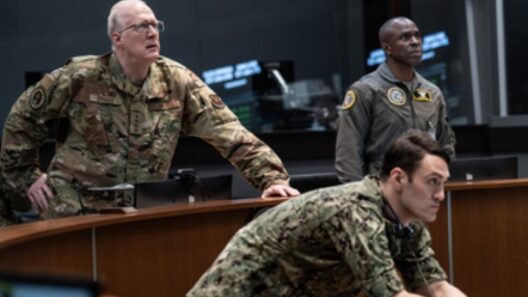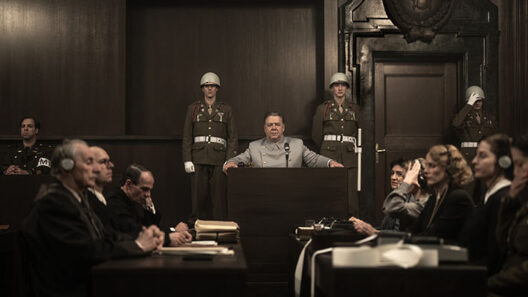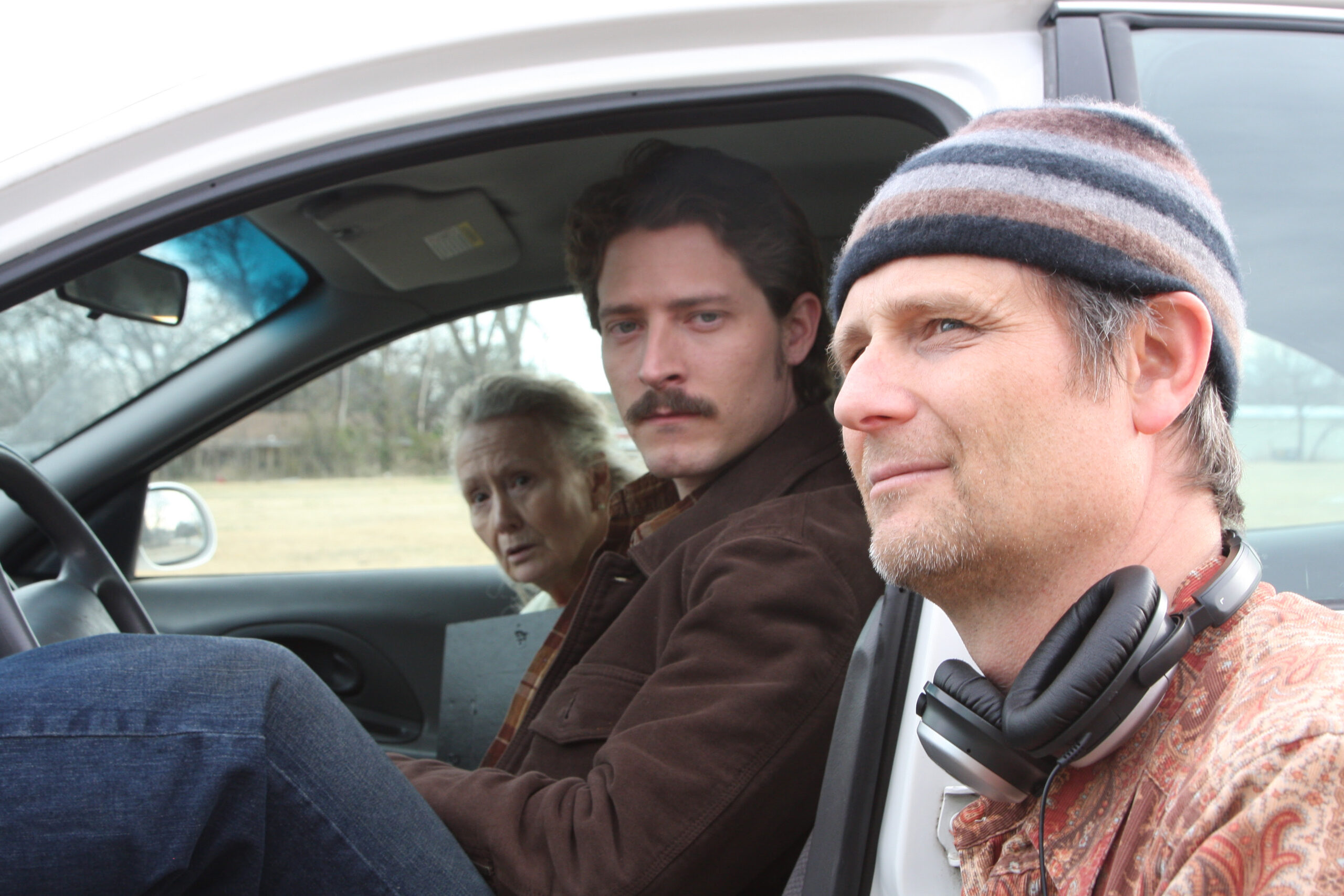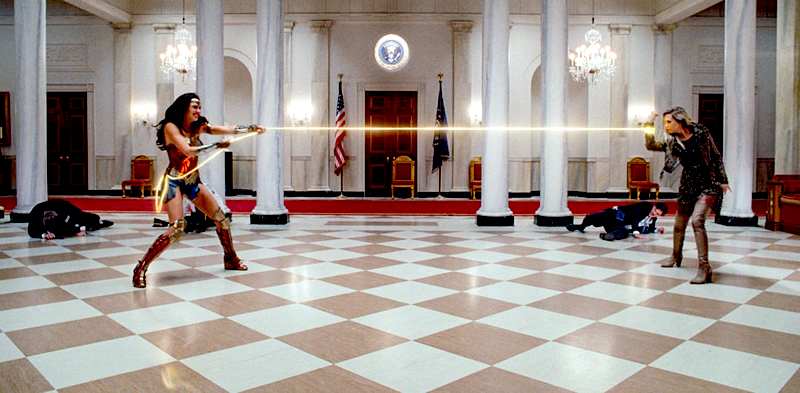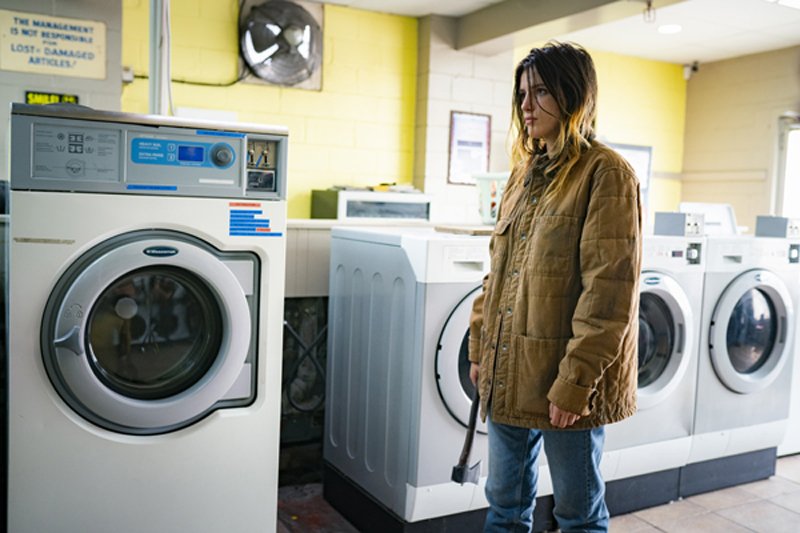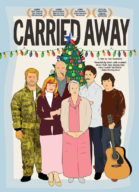 Writer/director/producer Tom Huckabee has over 40 years of experience in entertainment. He studied under Tom Schatz, Loren Bivens, and Edward Dymytrykand has directed such films as The Death of Jim Morrison and Taking Tiger Mountain starring Bill Paxton.
Writer/director/producer Tom Huckabee has over 40 years of experience in entertainment. He studied under Tom Schatz, Loren Bivens, and Edward Dymytrykand has directed such films as The Death of Jim Morrison and Taking Tiger Mountain starring Bill Paxton.
From 1998 to 2001, he was vice president of American Entertainment, underwritten by Walt Disney Studios, where he created and/or oversaw the development of feature projects with Touchstone, Universal, Imagine, Image Movers, HBO, Sony, and Revolution Studios.
In 2001, he executive-produced Paxton’s directorial debut, Frailty, starring Paxton, Powers Boothe, and Matthew McConaughey. He was an uncredited script consultant on Twister, Mighty Joe Young, Vertical Limit, U-571, Thunderbirds, The Greatest Game Ever Played, and The Colony. In 2005 he was a producer/writer on 75 episodes of National Lampoon’s An Eye for an Eye. His sophomore feature Carried Away won three first-place festival awards and is available on Amazon Instant View.
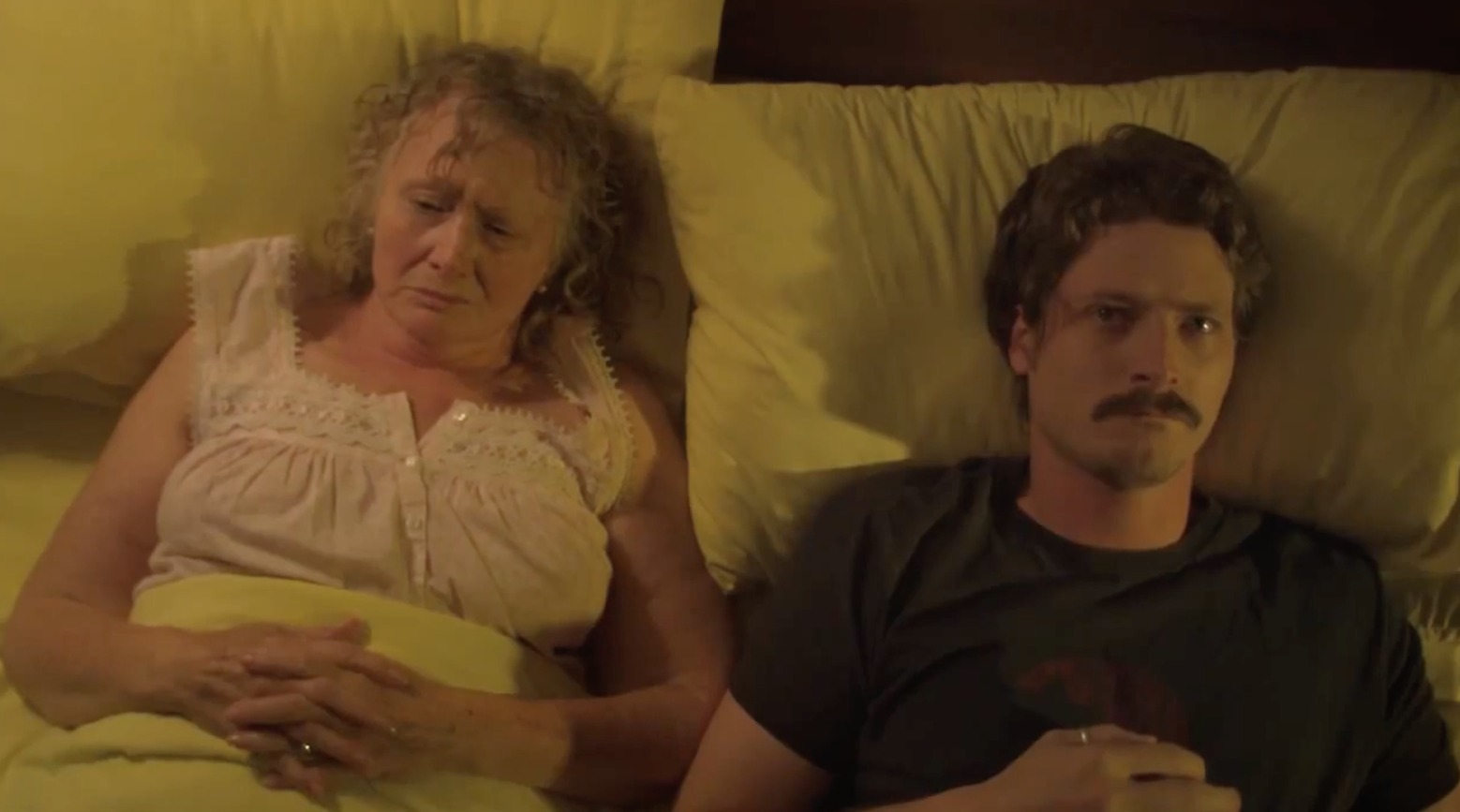
In Carried Away, Huckabee unites an ensemble cast in a story about an off-kilter family dealing with personal issues. A young man pursuing his dreams in Hollywood returns to Texas to find his family in turmoil. His parents’ marriage is crumbling, his youngest brother faces imprisonment, and his oldest brother hates him. When he learns that his beloved Granny has been trapped in a nursing home, he abducts her against his family’s orders. His father and brothers pursue him and Granny on a frantic road trip that reveals all sorts of family baggage.
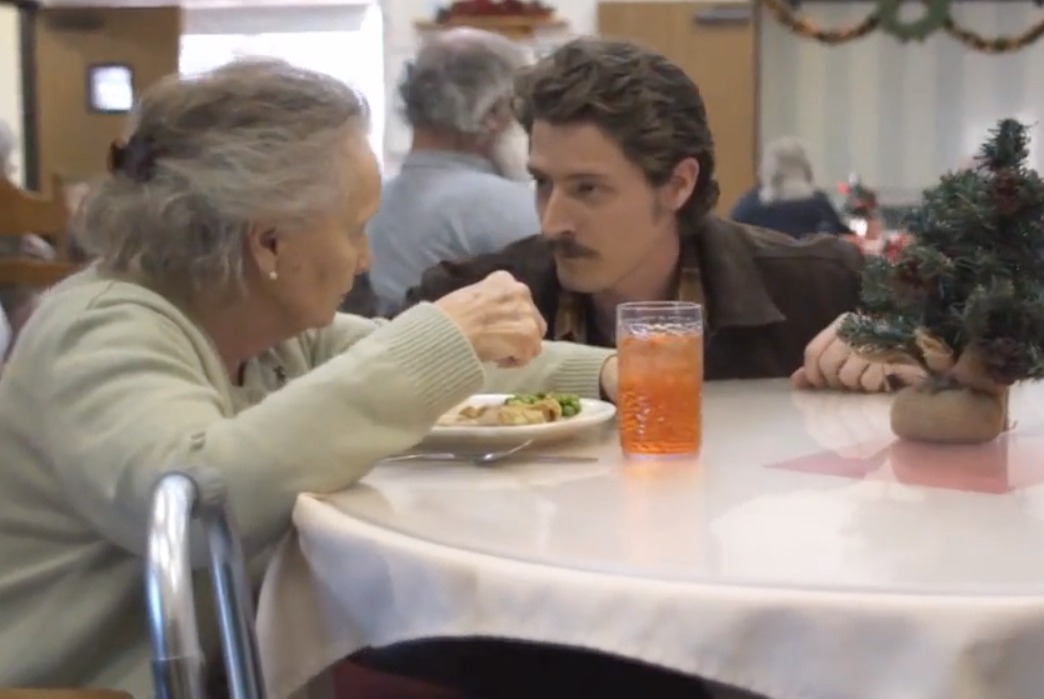
What was your inspiration behind Carried Away?
Tom Huckabee: It’s semi-autobiographical. I had a Granny very much like her and lived with her for several years. She lived nearby and after her husband died, she was pretty lonely. I was very close to her and my family home was a bit dysfunctional. It was quiet at her place and she spoiled me. Then, when I was in high school and civil rights was prevalent on TV, she would complain about the coverage. Later, after a knee operation, she became a bit mentally confused. Aside from that, a lot of the family dysfunction stuff is pretty accurate. Although it may have crossed my mind, I didn’t kidnap her. Because I think I’m more rational and cowardly than Eddie. So the plot was precipitated by the idea of what if I had kidnapped her from that nursing home. She wanted me to help her escape but we had no plans to do so. She was a problem at the nursing home and had to be tied down when I visited her. She had gotten out several times. One time she took her walker down the middle of the freeway, blocking traffic for miles until a motorcycle cop made his way through the traffic. She started running dragging the walker behind her. She believed the doctors who told her she couldn’t go anywhere without her walker. My family dynamic was fairly portrayed, except I had a sister who I left out of the story.
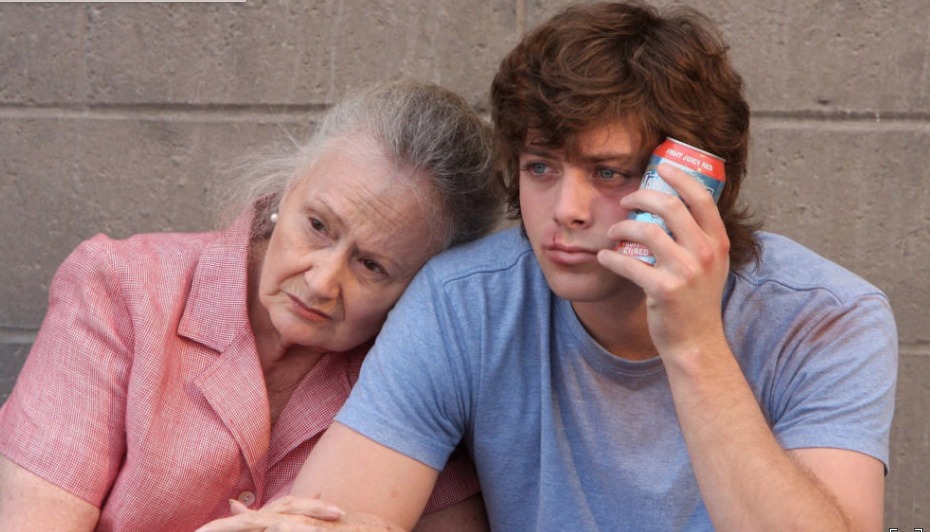
When your grandmother was going through all that, where were you in terms of your filmmaking career?
Huckabee: I’d moved to Hollywood, just finished school, and had taken Tiger Mountain to finish it, which was my first feature. I came home for Christmas.
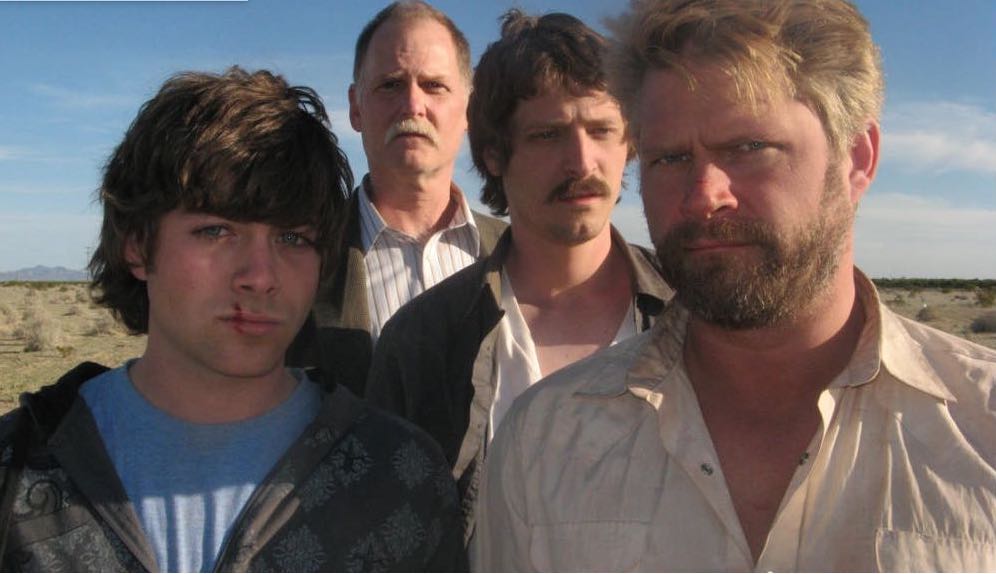
Each of the characters had their idiosyncratic view of life. How did you choose them when it came to casting?
Huckabee: That was really fun. I’d worked with my wife, Barbara Mae Cohen, who was a major casting director for 20 or 30 of the biggest films of the nineties—like Rushmore, Nightmare Before Christmas, and Hocus Pocus. My casting directors were Toni Cobb Brock and Sally Allen. I assisted, making lists because I knew of older actors. I really enjoyed that process. The casting directors I’d used on Dallas had done the casting I’d used on Frailty, which was a film where I was an executive producer that featured Bill Paxton—his first directorial effort. We’d grown up making movies together. So when I moved back to Texas, I looked up the people that had helped Barbara with Frailty and hired them. They loved the film and made a list of the top actors they thought would be right for Carried Away. I wanted to cast a known actor for Eddie’s father, but by that time, we were already rolling. So I read Mark Walters, who wasn’t anything like my father and went with him and it turned out to be one of the best decisions, I’d made in the film. The wisdom in Hollywood suggests you need at least one name star in a film. But overall, there was an embarrassment of riches in the Dallas-Fortworth area, which was filled with great acting talent. Probably the best screenings I’ve had were in liberal churches. They recognize the biblical references and inspiration in the film. I would hope that every Christmas, along with It’s a Wonderful Life, people sit down and watch Carried Away.
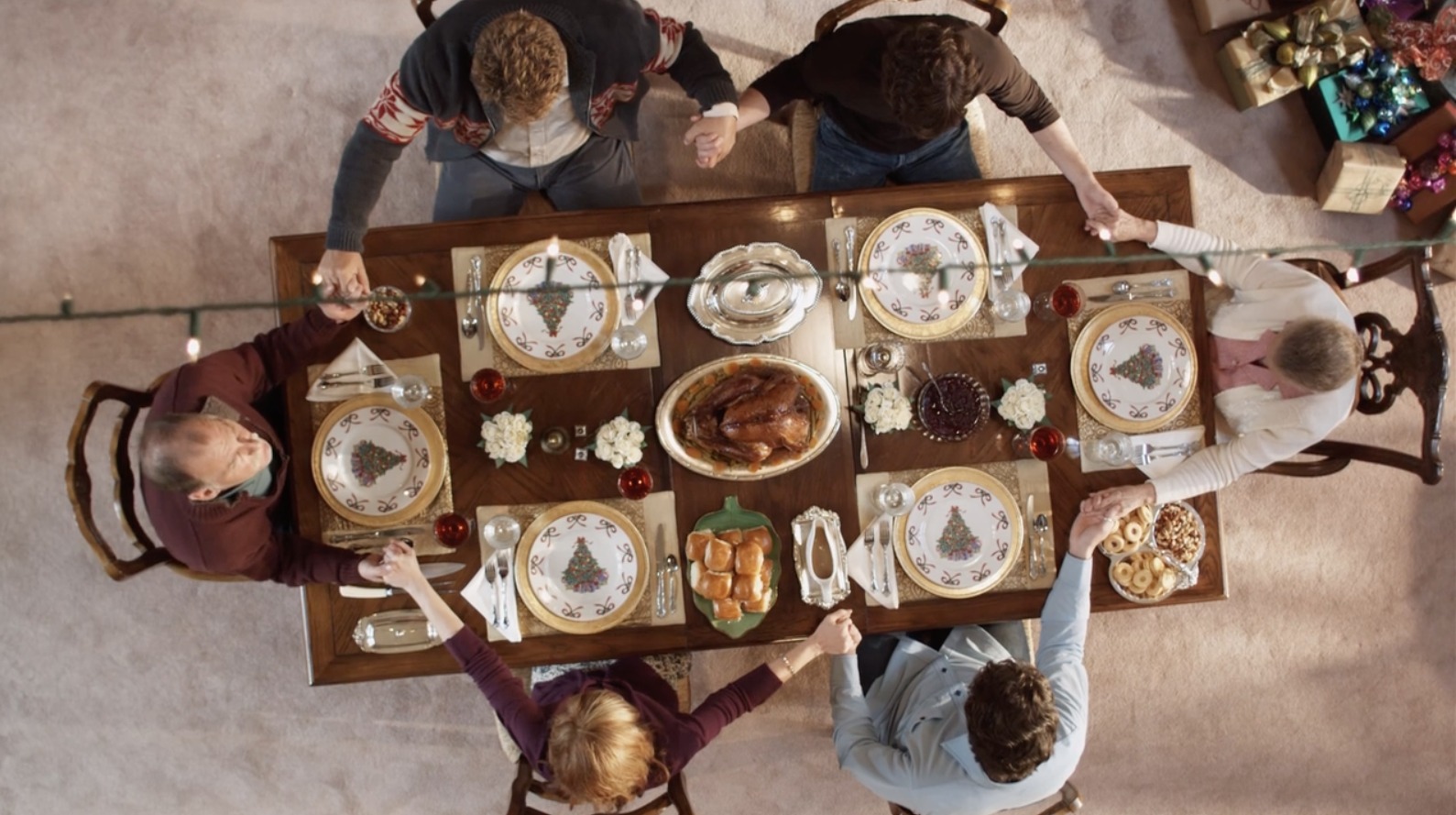
Besides the usual limited time/limited budget problems, what challenges did you face in filming?
Huckabee: The first big challenge was making the overhead dinner shot work. We had set up the scene to shoot it normally. We did a couple of wide shots but I also wanted to do a wide ceiling shot. But the ceiling wasn’t quite tall enough to get the shot so we had to do it about 15 times. My AD advised me that if I kept doing the ceiling shot, I wouldn’t be able to do the other shots, so I decided to go with the ceiling shot and get it perfect. Bill Paxton said that shot had to go, so we added a zoom to the shot, slowed it down, and reframed it, so it looked like we had gotten the shot.
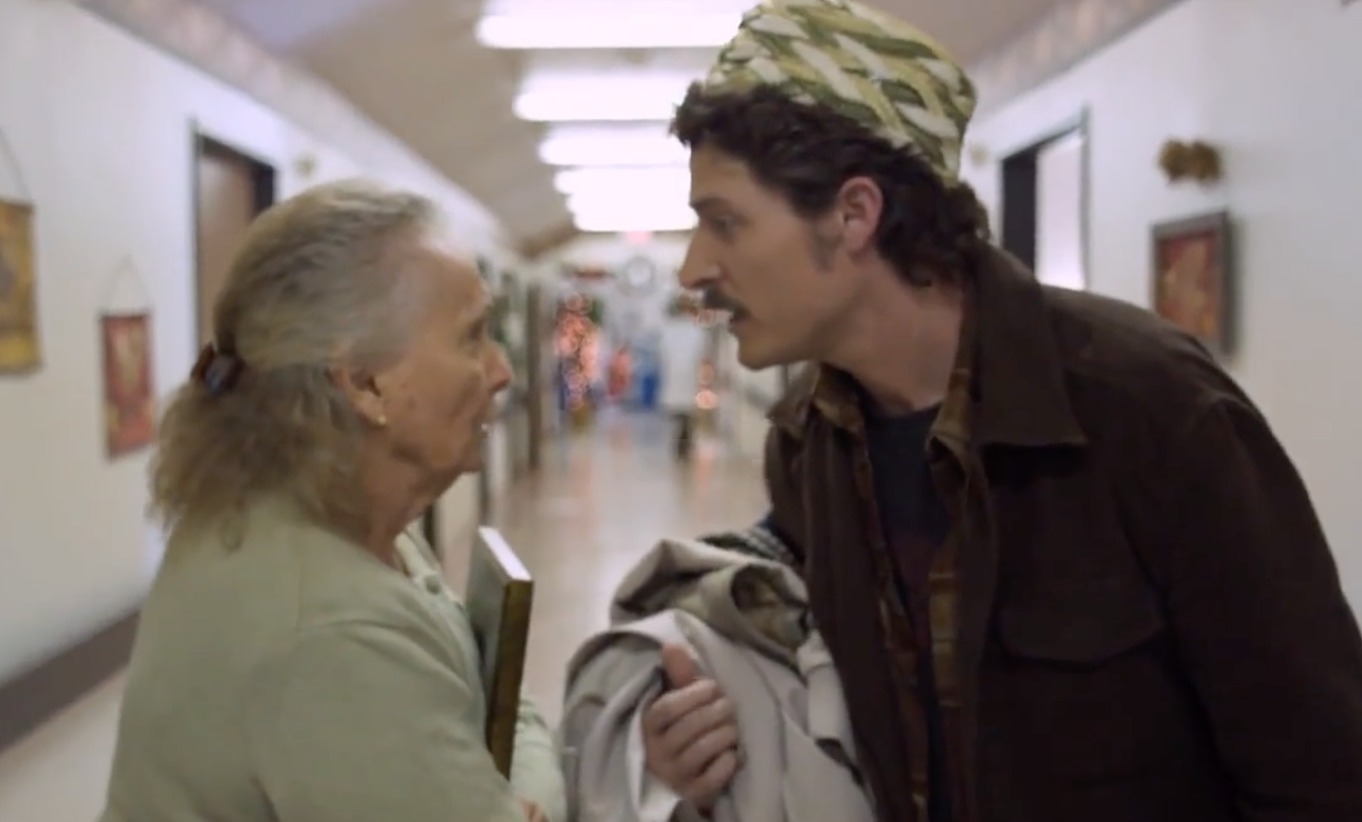
How did you balance the humor and heartbreak in this film?
Huckabee: I love that question. It was sticking to the truth. I didn’t kidnap my grandmother and my father and brothers didn’t chase after me. But it was an exercise in meditation, rumination, and imagination. I know the characters intimately. So what if I put them in this situation? Well, I knew how these characters would behave and I knew enough about dramatic structure, that as long as things bend but don’t break, the difference between tragedy and comedy is that in a comedy, people live in the end. Showing the foibles of people in a way where no one is killed is something you can laugh about. Scorsese’s films are like that. I laughed more in Goodfellas than I did in most comedies. So I guess I have a macabre sense of humor. So it wanted to tell a very intimate and personal family story but form a bird’s eye point of view. By pulling back and looking at it objectively, human behavior is hilarious. My favorite film is Freebie and the Bean. It goes from totally slapstick comedy to very touching, moving, and subtlety played dramatic scenes. In Carried Away, all the actors knew each other and were on the same page. The crew also had worked with them before. There was time for rehearsals and camaraderie and the drive from California to Texas gave us time to talk. And Gabriel is like a younger, better-looking re-creation of myself.
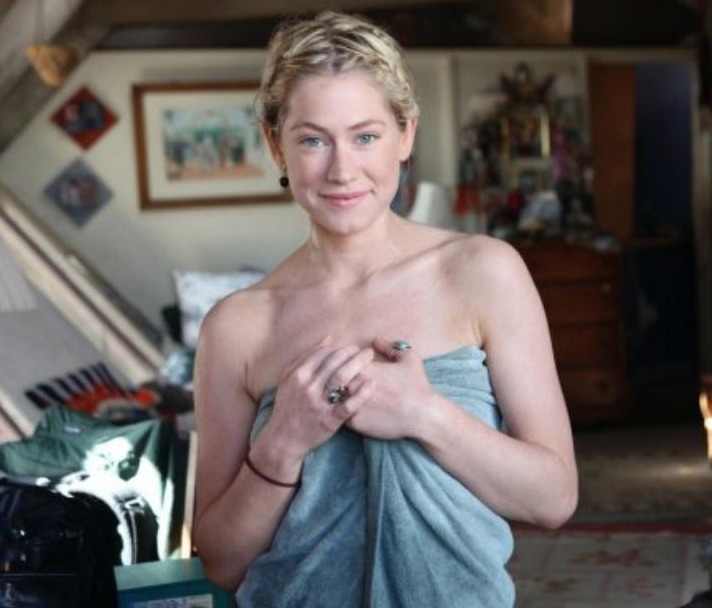
The stop off at Arcosanti introduced us to Ed’s former girlfriend, Sarah. But why did you choose Arcosanti with its unusual architecture and its metal works? Metaphor?
Huckabee: The metaphor is that of a utopian society. So you’ve got these people who are coming from a dystopian life than many people live in today’s suburbs and we’re potting them in a context where people don’t behave that way. It was part of the somatic purpose. I wanted the family to see a different way of living. The reason I chose Arcosanti as opposed to any other commune was that when I graduated from college, I passed through Arcosanti because a friend from film school moved to Arcosanti and became the head of the foundry. And I had been introduced to Arcosanti five years earlier and got to see it at a very early stage. I’d also seen a book of Arcosanti showing what it was supposed to look like a hundred years from now. I’d fantasized about communes and in school; I joined a co-op and lived in it for about four years.
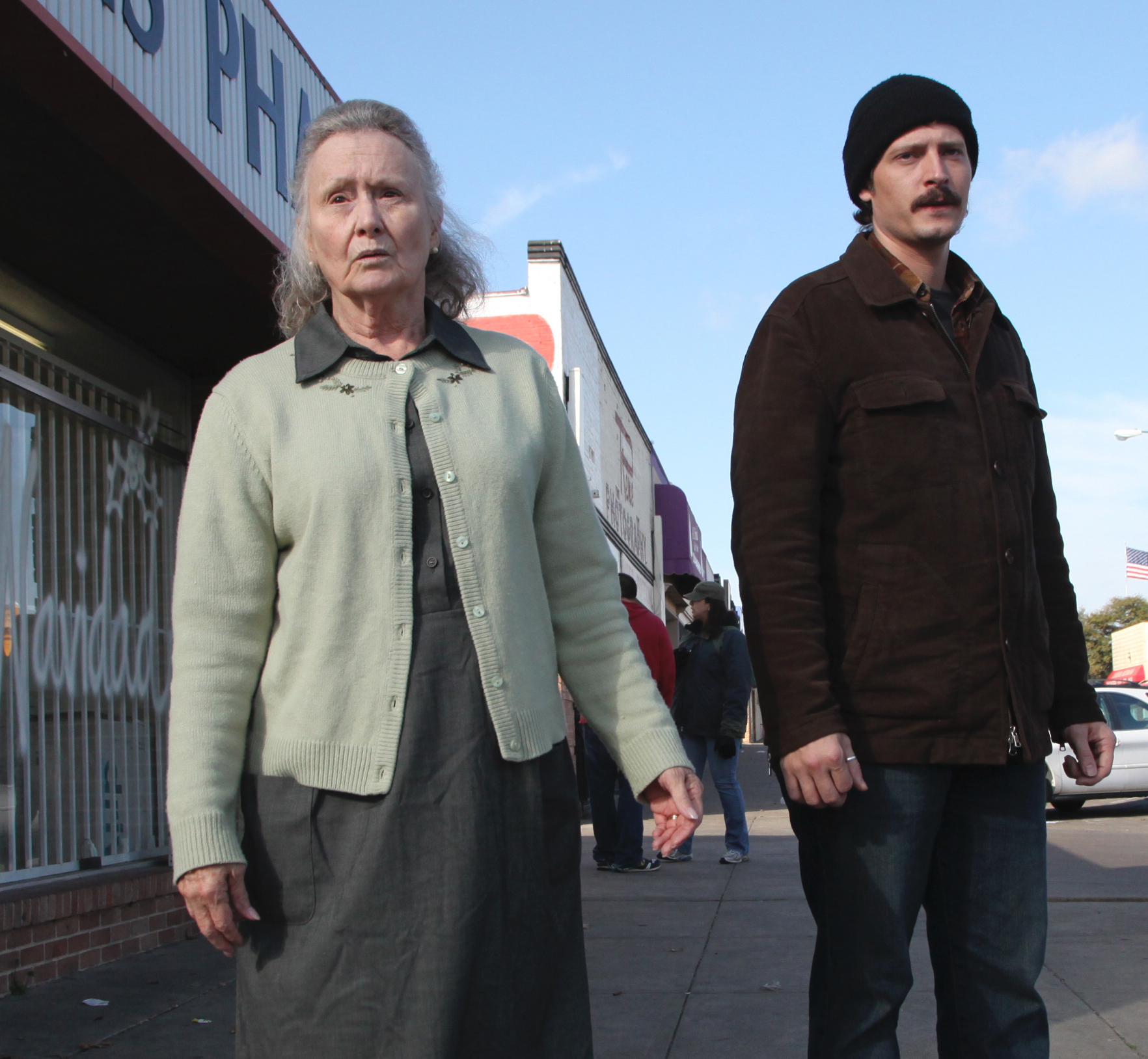
The backstory of what Eddie’s father did with Granny was very revealing and tugged at emotions we all feel toward our elders. Can you go into that a bit?
Huckabee: That was one of my main reasons for writing it. I wrote it thirty years ago when my father was the patriarch of the family and I was having issues with his authority. And I had issues with how he handled things with his mother (my grandmother). I knew that they’d always had a lot of conflicts. He felt dominated by her so he was very rebellious—we’re talking about the 1930s and 1940s—growing up in small towns in Texas with very church-going prudish “helicopter? Mother. He was into Swing music and partying and would have to sneak around and got used to lying to her. But he really loves his father, who was the “Good Cop.” So when his dad died in 1963, which is when I started staying with my Grandmother. And he was happy that I was doing it. I was giving her the emotional support that he was incapable of providing. She was still very domineering. She treated me different, spoiling me.
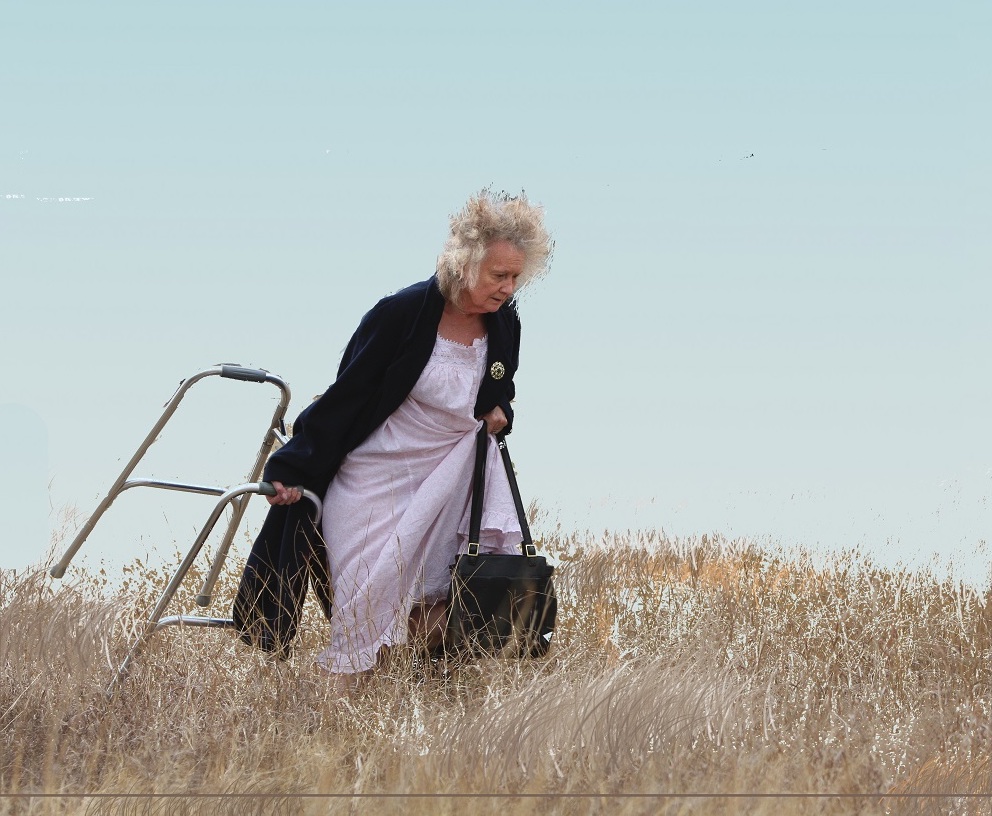
What advice would you have to young filmmakers just starting?
Huckabee: Make movies and don’t’ let anyone stop you. I didn’t have the money to make Carried Away. I had enough to get it into the can. But getting the rest of the money was tough. It ended up kind of breaking me financially. I like to say it’s the best and stupidest thing I ever did. It’s like an infection. If you have it, and you’re willing to risk it all to be filmmakers, just keep doing it and try to make it happen—as James Cameron would say. And realize that every movie is going to take its pound of flesh from you.
RENT or PURCHASE CARRIED AWAY on Vimeo
Alex A. Kecskes is a published author of "Healer a Novel" available on Amazon. He has written hundreds of film reviews and celebrity interviews for a wide variety of online and print outlets. He has covered red carpet premieres and Comic-Con events for major films and independent releases.

